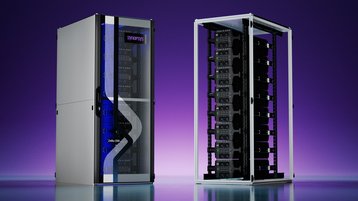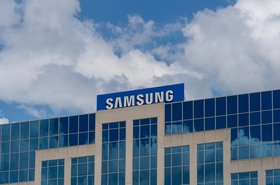Synopsys has expanded its Hardware-Assisted Verification (HAV) portfolio to support advanced semiconductor design.
The updates include adding HAPS-200 prototyping and ZeBu-200 emulation systems to its product line and enhancing its ZeBu Server 5 to support scalability beyond 60 billion gates to address the growing hardware and software complexity in SoC and multi-die designs.
HAV streamlines verification and validation by integrating emulation, field-programmable gate array (FPGA) prototyping, and virtual platforms. Synopsys’ new HAPS and ZeBu systems were based on the latest AMD Versal Premium VP1902 adaptive SoC.
Speaking to DCD, Frank Schirrmeister, executive director of Synopsys product management and markets group, said there are four trends driving the company’s hardware-assisted verification efforts: Software complexity, hardware complexity, and interface and architectural complexity.
“In order to verify all [these four elements], you need to do a quadrillion cycles and what the means is verification is happening in phases – there’s verification at the IP core level, then you build subsystems… then you build full SoCs again with software stacks on top, and then you go all the way to the multi-die,” he said. “So Hardware-Assisted Verification is the bridging of the gap between the early verification and the full system verification.”
The four key components to addressing these challenges are performance, speed, scalability – you need to be able to address various types of designs – and ROI.
Synopsys says its next-generation HAPS-200 and ZeBu-200 systems deliver improved runtime performance, better compile time, and improved debug productivity. The offerings have been built on new Synopsys emulation and prototyping (EP-Ready) hardware which enables emulation and prototyping use cases via reconfiguration and optimized software to boost customer ROI.
The HAPS-200 prototyping system offers “industry-leading runtime performance” and faster compile, with 4x improved debug performance when compared to the HAPS-100. It also uses the existing HAPS-100 ecosystem and supports mixed HAPS-200/100 system setups, scalable from single FPGA to multi-rack setups with capacity of up to 10.8 billion gates.
The Synopsys ZeBu-200 emulation system has an extended design capacity of up to 15.4 billion gates and offers up to 2x higher runtime performance compared to the previous generation ZeBu EP2 with faster compile time, thus reducing turnaround time and improving development productivity.
ZeBu-200 also features up to 8x better debug bandwidth, offering 200GB debug trace memory per module and improved job scheduling and relocation.
Meanwhile, by extending its Modular HAV methodology to ZeBu Server 5, Synopsys has increased its scalability beyond 60 billion gates to meet the industry’s growing emulation capacity needs, including support for the largest multi-die designs, whilst simultaneously reducing compile time and compute resources.
Finally, Synopsys has upgraded its Virtualizer to support multi-threading technology, accelerating software bring-up processes such as enabling a full Android boot in less than 10 minutes.
Schirrmeister said that because the methodology is modular, there is always going to be a practical limit to how it can scale as there will always be a trade-off between the time it takes to set up these very complex, modular verification setups with the results and the speed you get.
“And the fact of the matter is that today, you really need to run these very large AI workloads on the full system… you need to run software and AI workloads early on, before you go to market with your chip or even invest in the silicon run.”
However, despite this, Synopsys believes its HAV offering will continue to scale, and it feels “very well prepared with these engines to give you the best way of optimizing for performance in the right capacity range, and optimizing for best scale and capacity in the higher ranges with the modularity.”
The Synopsys HAPS-200 prototyping system is available now while the Synopsys ZeBu-200 emulation system is available now for early access customers.







